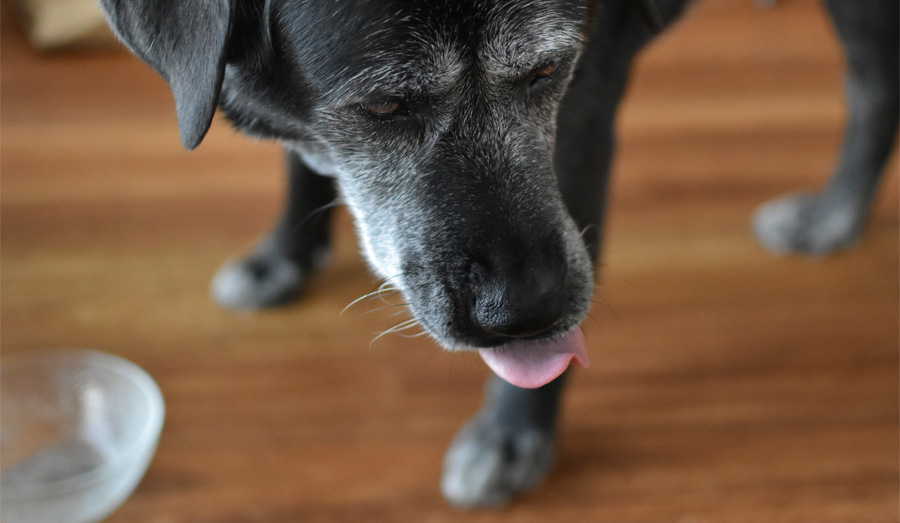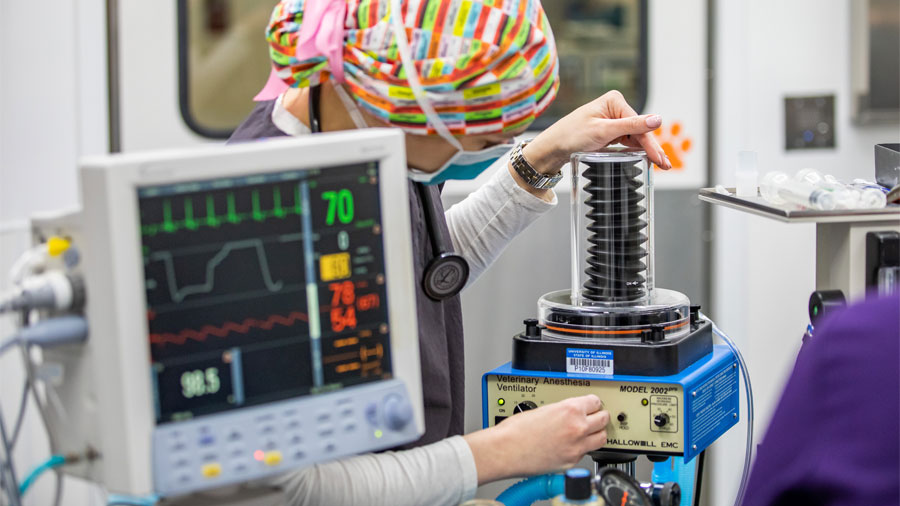Springtime means foaling season! Unfortunately, some new foals run into trouble and need veterinary support. Failure of passive transfer is one of the most common reasons that bring foals to the University of Illinois Veterinary Teaching Hospital for care. Dr. Aya Kanzawa, an equine intern at the hospital, explains this problem and how it can be treated and prevented.
What Is Failure of Passive Transfer?
Passive transfer is the process of foals absorbing immunoglobulins, or disease-fighting antibodies, from their mothers’ nutrient-rich first milk, called colostrum. The antibodies in colostrum help protect foals against disease until the foals can produce antibodies on their own.
“Failure of passive transfer (FPT) occurs when foals do not drink enough colostrum,” Dr. Kanzawa explains. Without this protection, foals will likely succumb to harmful viruses and bacteria.
Several factors may lead to failure of passive transfer, according to Dr. Kanzawa. On the mother’s side, FPT can be caused by low antibody concentration in the colostrum, colostrum leaking out before the foal is born, or rejection of the foal, meaning the mother does not allow the foal to nurse. Problems with the foal that result in FPT include congenital abnormalities, such as cleft palate, and being orphaned, among others.
What Does FPT Look Like?
The impact of FPT ranges from general lethargy to catastrophic infection, depending on the foal’s antibody levels. Foals with complete failure of passive transfer have no protection, while those with partial failure of passive transfer are inadequately protected. Common clinical signs include fever, decreased appetite, inability to stand, diarrhea, and swollen joints.
How Is Failure of Passive Transfer Treated?
Once a foal is diagnosed with FPT, the best treatment is to administer colostrum to increase the foal’s antibody levels. However, this approach is only effective when done within the first 24 hours of life.
“Usually by the time FPT is recognized, it is too late to create sufficient absorption of the antibody immunoglobulin G by administering colostrum,” says Dr. Kanzawa. After the first 24 hours, foals are treated by giving plasma that contains antibodies.
Without aggressive treatment, these foals have a very poor survival rate.
What Prevention Strategies Are Available?
While failure of passive transfer is a serious and sometimes fatal condition, proper management and veterinary care makes prevention possible.
“It is important to observe foals and mares closely to detect FPT as soon as possible,” she said. “Foals that are deprived of colostrum should be given known, high-quality colostrum within 4 hours after birth.”
In foals appearing sick or weak or in situations where high-quality colostrum is not available, a veterinarian should be contacted immediately. According to Dr. Kanzawa, having a veterinarian examine the foal and perform a test of its antibody levels 12 hours after birth is highly recommended.
By Alaina Lamp
Feature photo by Phil & Karen Rispin




